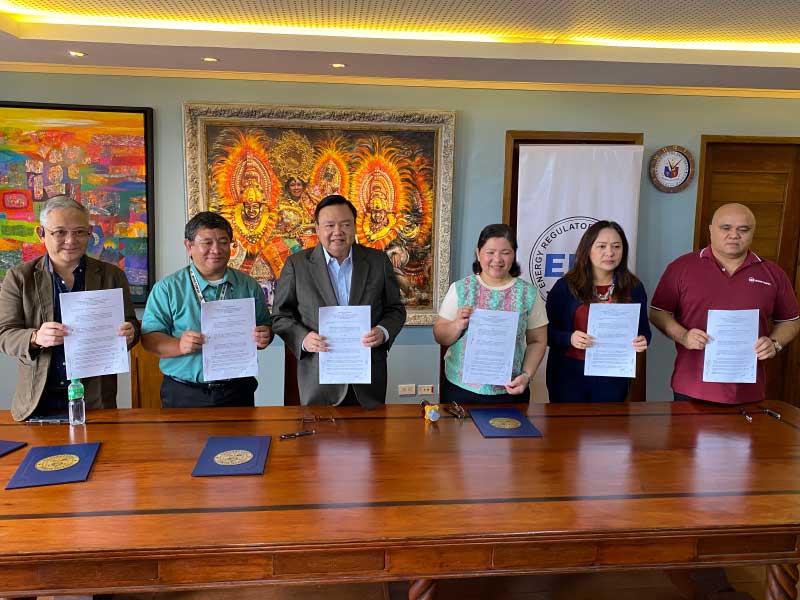
By Joseph Bernard A. Marzan
Iloilo City is the first area outside of Luzon to sign a tripartite agreement that pushes the renewable energy programs of the Energy Regulatory Commission (ERC).
ERC chairperson Monalisa Dimalanta, Iloilo City Mayor Jerry Treñas, and MORE Power President Roel Castro signed the agreement Thursday that will introduce the Net-Metering Program (NMP) and Distributed Energy Resources (DER) to the city.
The agreement mandates the ERC to collaborate with the Iloilo City Government and MORE Power to share information, materials, technical and regulatory expertise, and assist in identifying points for improvement on the NMP and DER, and other related matters.
MORE Power is expected to set up a booth that will cater to NMP and DER applications, which they can also use for other services except for accepting payments.
As the city’s distribution utility, MORE Power will also be tapped to share their experience through an Information and Education Campaign (IEC) by the ERC on the two projects.
The Iloilo City government is tasked to review and streamline its permit processes, in accordance with the provisions of Republic Act No. 11032 (Ease of Doing Business Act of 2018), and provide logistical assistance for the IEC campaigns and a location for MORE Power’s booth.
The main objectives as outlined in the agreement include facilitating collaboration opportunities, advancing technology development, demonstration, and development, and sharing best practices, knowledge, and insight.
The NMP, according to the Department of Energy (DOE), will involve the installation of solar photovoltaic panels of up to 100 kilowatts, which will enable homeowners and commercial establishments to partly satisfy energy demand by themselves.
The DER is a separate program and is defined by the ERC’s Rules for the DER as power sources that are connected to the distribution system or electrical system of the end-users requiring electricity supply and delivery for their own use.
NMP and DER are seen to be key in managing electricity costs, reducing greenhouse gas emissions, and will be utilized to accelerate the use of renewable energy technologies starting with solar photovoltaic systems, or more commonly known as solar energy.
These initiatives led by the ERC will focus on the expansion and development of public-private models to support the national government’s goals to achieve a 35 percent mix in Renewable Energy by 2030 and 50 percent by 2040.
Prior to the signing of the agreement, the ERC had already issued Certificates of Compliance to 72 qualified end-users under the NMP in the city as of June 30, 2023, with a total capacity of 985.37 kilowatt-peak.
Dimalanta said that the city is only the second local government unit (LGU) to ink a tripartite agreement for the NMP and DER piloting in the country.
The first tripartite agreement was signed with the Pasig City LGU and MERALCO earlier last month.
“What we really want to do in ERC is to bring solutions closer to the consumers, so we don’t wait anymore for consumers to ask us, for LGUs to ask us, or utilities to ask us, what our solutions are, and waiting in the national agency to come to us. What we want is to get solutions closer to consumers, and we are very grateful to Iloilo City for not just acting positively to our request, but more importantly, acting so swiftly,” she said.
Treñas shared his hope that the program would help more people to be interested in installing solar panels for their own homes’ and establishments’ energy consumption.
“We hope that with this partnership, we will be able to encourage more people to go green [with] solar panels, solar lights, etc. so that we achieve the targets made by the DOE and the national government,” the mayor said.
He cited that these would be additions to current solar energy initiatives in public facilities, including at the Iloilo City National High School in Molo district, and upcoming solar panel installations at the Iloilo City Hall, the city dialysis centers, and Iloilo City Action and Response (ICARE) centers.




















